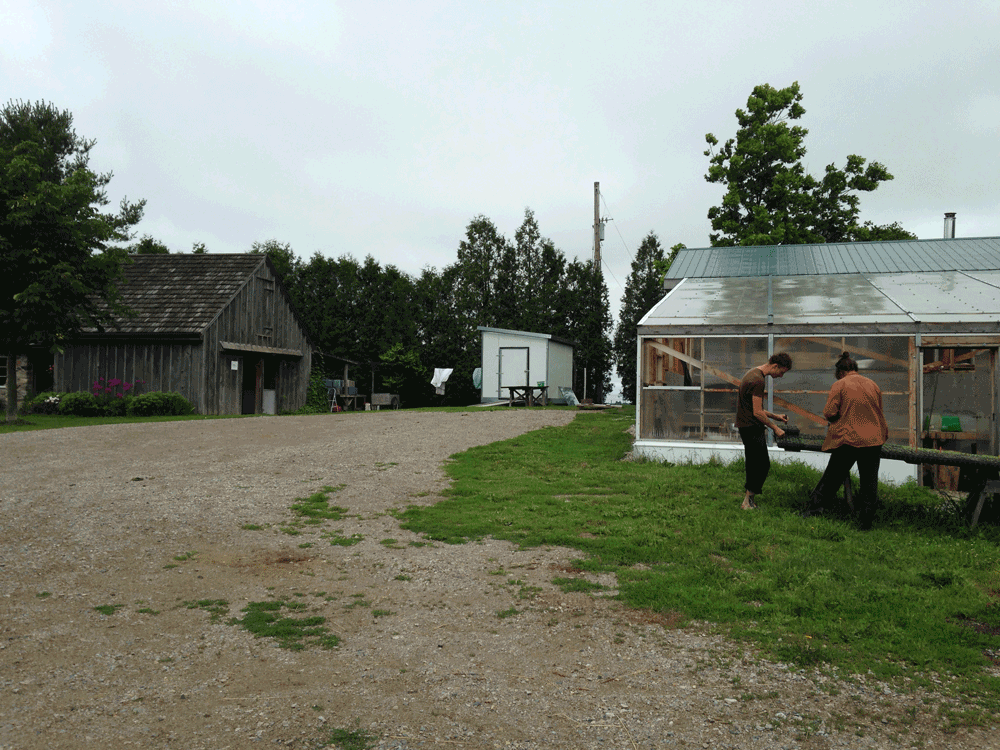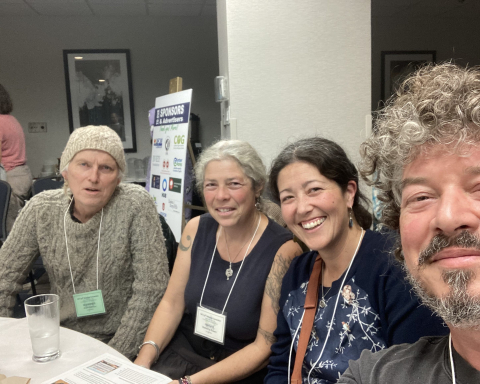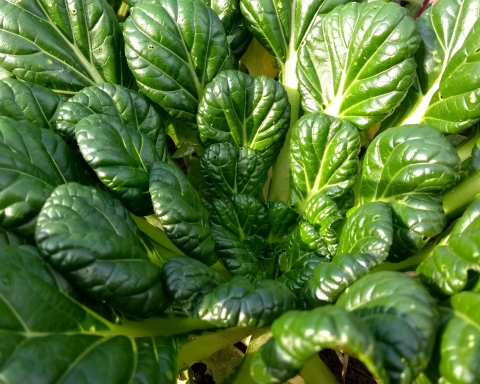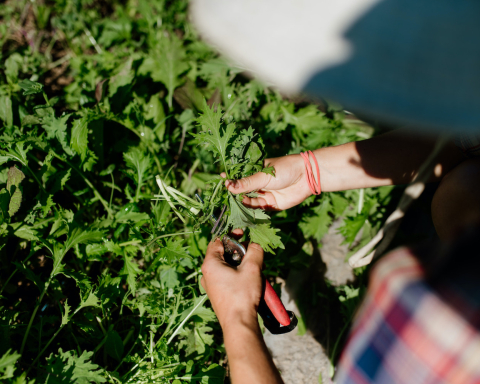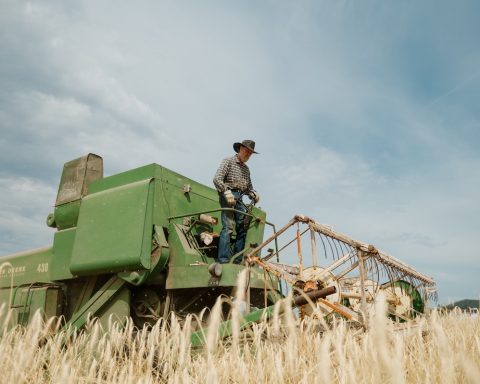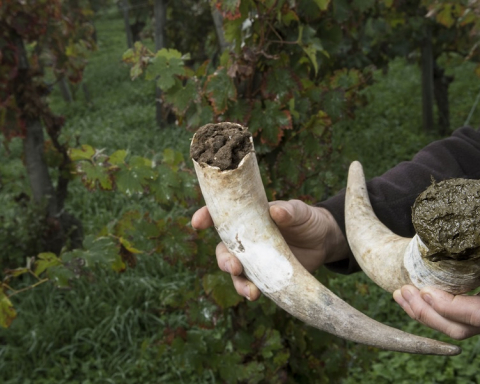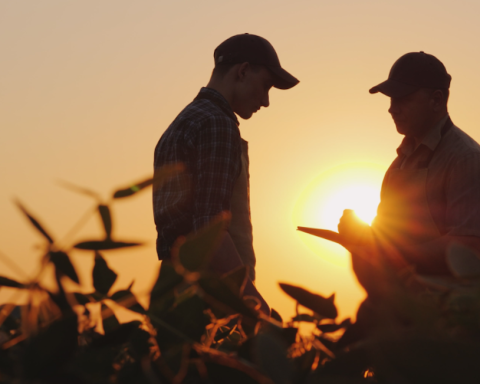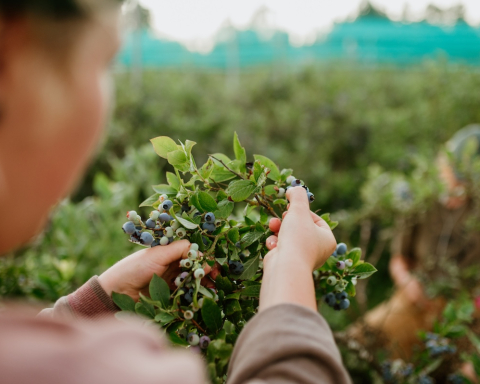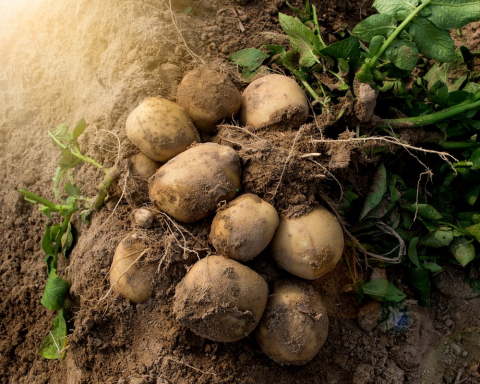Michael Ekers and Charles Levkoe
Originally published by Ecological Farmers Association of Ontario in Ecological Farming in Ontario, Volume 36, Issue 5. While the research was conducted with farms in Ontario, much of the findings likely carry over to BC.
There are increasing numbers of interns, apprentices, and volunteers working on small- and medium sized ecological farms across Ontario, but also across North America and Europe. More and more, farmers are looking to young people seeking farm experiences as a way to train the next generation of farmers and meet the labour demands of their operations. As readers will surely know, interns often exchange their labour for room and board, a stipend and importantly, training in organic, agro-ecological, and/or organic production methods. This is a relatively new and potentially defining trend within the ecological farming sector with considerable significance for farm operators and interns alike.
Over the last two years we have been leading a research project examining the growth and implications of farm internships and the experiences of these types of farm workers. Incredibly generous farmers, interns, and non-profit members have made our research possible by completing our surveys and taking time out of their busy days to patiently and thoughtfully answer our questions. This first, in a series of short articles, reports on some of our initial findings. We will explore further results and observations in subsequent pieces.
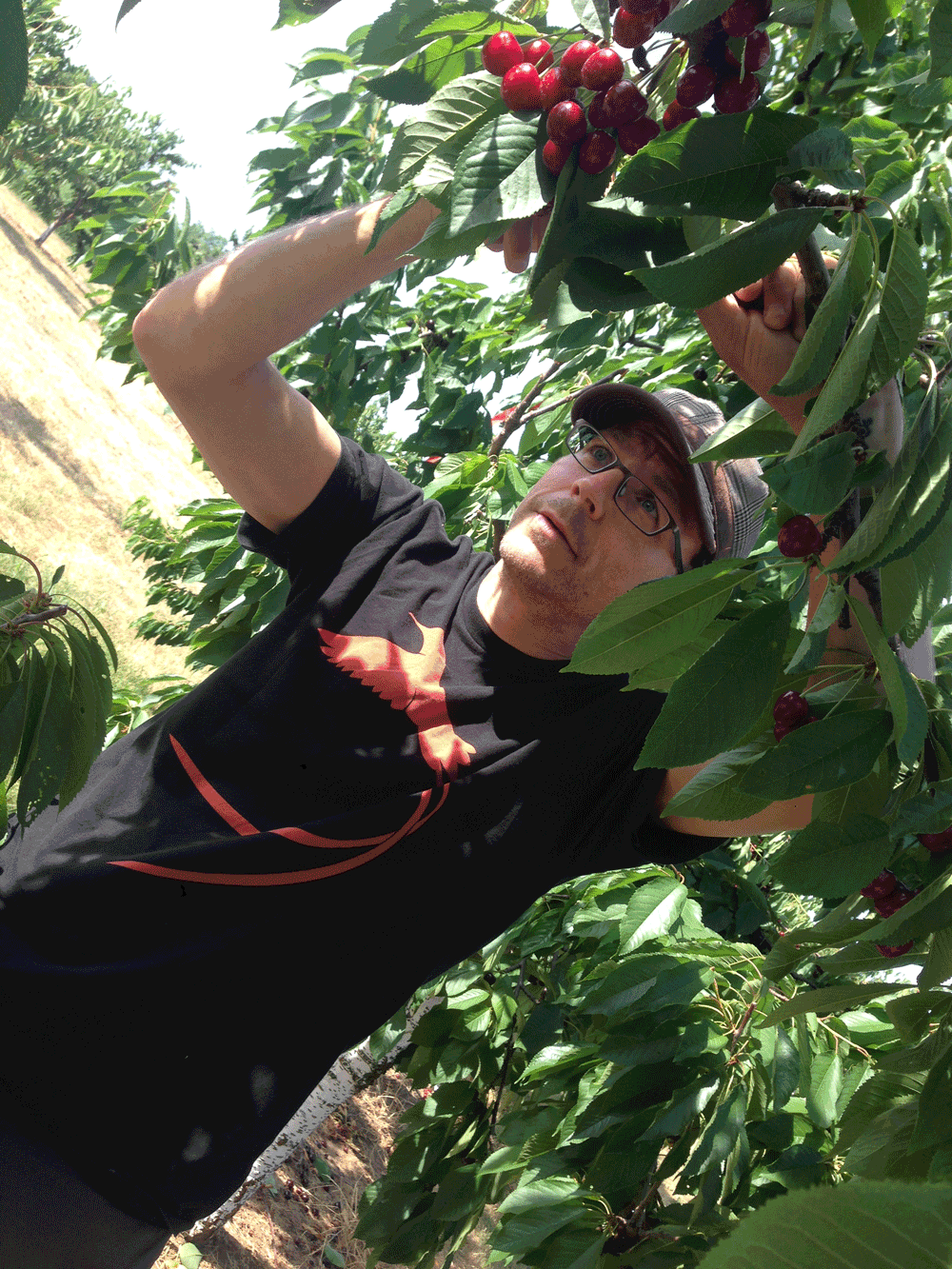
Many of the farmers and agroecology advocates that we initially met with noted the lack of data and information on farm internships and volunteer work, which we describe as new forms of non-waged work. In response, we conducted two Ontario-wide surveys in 2014 and 2015 of farms making use of interns and volunteers. The goal of the survey was to determine the scale of internships and volunteer positions on farms and the types of farms making use of non-waged workers. It also sought to explore the benefits and challenges of working with interns and volunteers. There were several key trends that emerged from the 200 responses to the survey.
The farms making use of non-waged workers tend to be relatively small to medium sized with an average of 69 acres under cultivation. In terms of production methods, about 60% of the farms in our sample were non-certified, but practicing ecologically-oriented methods, including agroecological, biodynamic, permaculture, and organic farming. 21.7% had a recognized certification, with the majority being certified organic. 14.5% identified as practicing other kinds of agriculture, while just under 4% employed conventional methods. 87% of the farms we surveyed market their products directly to consumers through a CSA or a farmer’s market while 39% of farms sold to retailers and only 9% sold to a wholesale buyer.
On the types of farms we just discussed that responded to our survey, there was an average of 4.2 non-waged workers on farms compared to an average of 1 minimum waged-worker per farm. Our results suggest that 65% of the workers on the farms we surveyed were non-waged, while the provincial average for the entire agriculture sector is 4%. While it is difficult to gauge exactly how many farms are using non-waged workers our research suggests that there are at least several hundred farms in Ontario that are sharing their knowledge and skills and meeting their labour demands through the recruitment of interns and volunteers.
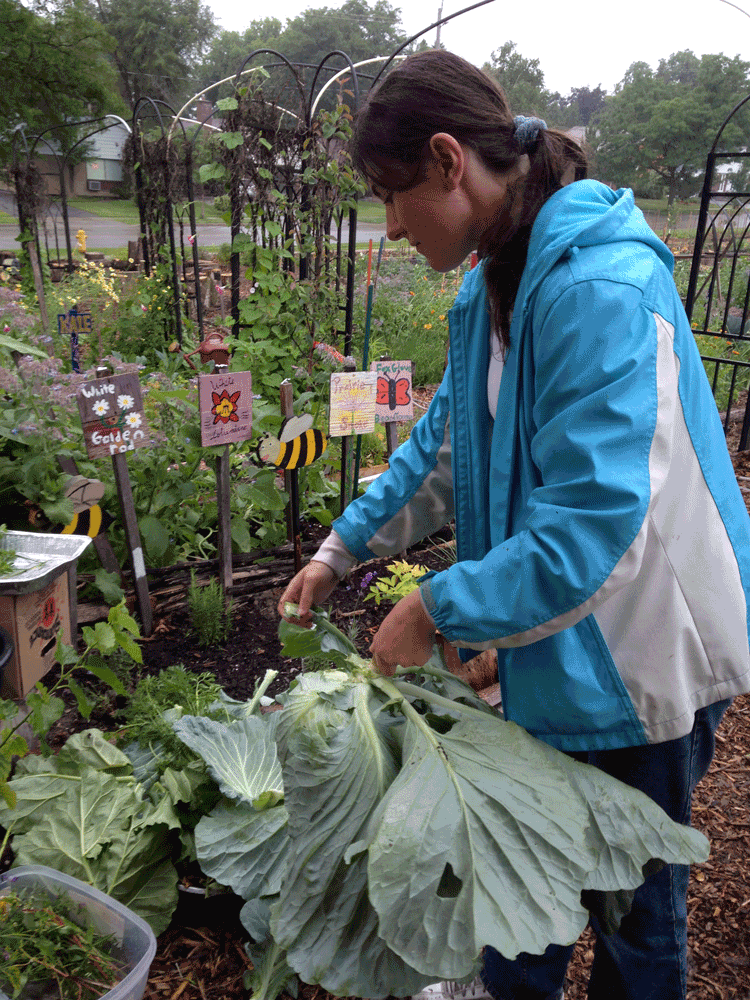
One of the key findings of our survey was the thin profit margin associated with ecological forms of agriculture production. We suggest that the use of interns and volunteers must be understood within this economic reality. Respondent farms reported an average annual gross farm revenue of $94,786. Perhaps more illustrative of the strained financial situation of the farms we surveyed is the personal net on-farm income that farmers drew from their revenues. On average respondents reported a personal on-farm income of only $13,629.
The challenging financial situation means that many farms felt dependent on their non-waged workers to meet the farm’s labour demands. Almost 60% of farm owners and operators felt that they were dependent on interns and volunteers. However, our analysis suggests that the dependency of farms was not related to a farms’ reported revenue. Famers with high revenues were as equally dependent on non-waged workers as lower grossing farms. However, one factor that determined whether a farm was dependent on non-wage workers was levels of off-farm income. The average off-farm income for dependent farms was $20,554 lower than non-dependent farms.
Farmers’ dependency on non-waged workers is a significant issue for the ecologically oriented farming sector given the increasing public and legal scrutiny on various internship programs across North America. Additionally, many survey respondents flagged the risk of being dependent on non-waged workers that despite the best of intensions generally lack experience with farm work and may not be as committed or dependable as paid workers.
A pressing issue that comes out of these findings is around the sustainability of non-wage workers as a model for farmer training and on-farm labour. We need to ask the question: Is it possible to scale-up and expand forms of ecological farming though non-waged workers? Is this a trend that is fair for all? There are no easy answers to these questions but in our next installments we will explore some of the tensions and possibilities in the comingling of farm labour and educational training on farms.
If you would like more information on the project, to comment on these issues or contact us please visit our website: foodandlabour.ca.
Dr. Michael Ekers is an Assistant Professor in Human Geography at the University of Toronto Scarborough. His work mobilizes social and political theory and political economic approaches to understand the making of different environments and the cultures of labour in environmental spaces.
Dr. Charles Levkoe is the Canada Research Chair in Sustainable Food Systems and an Assistant Professor in Health Sciences at Lakehead University. He has been involved in food sovereignty work for over 15 years in both the community and academic sectors. His ongoing community-based research focuses on the opportunities for building more socially just and ecologically sustainable food systems through collaboration and social mobilization.
Photos: Charles Levkoe


